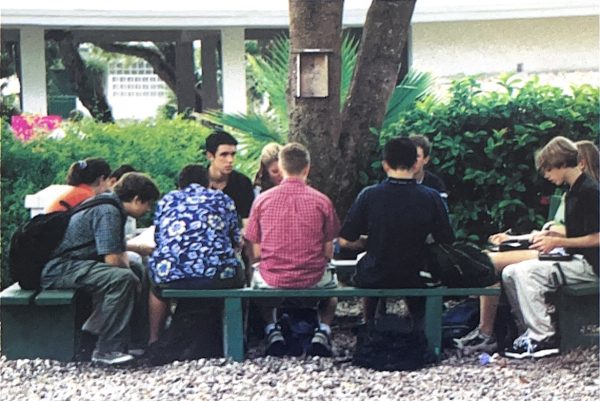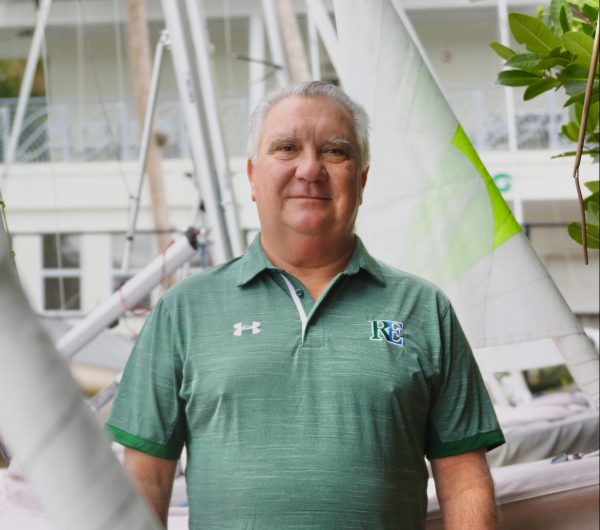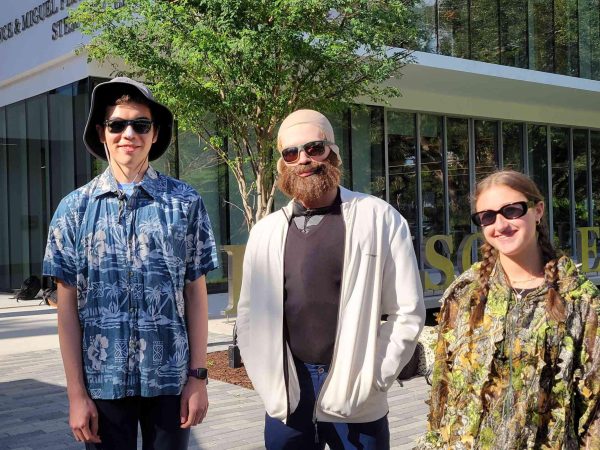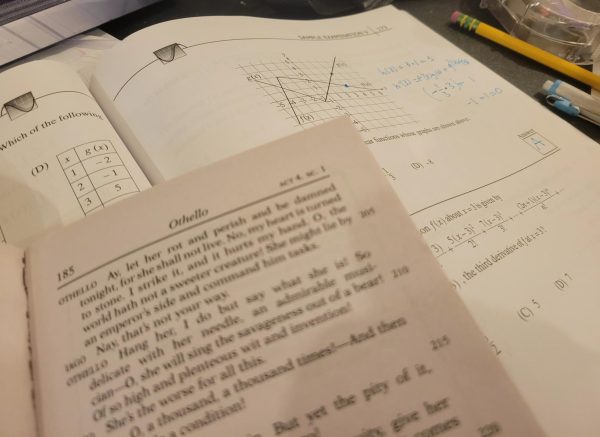Expanding your worldview: a quick glimpse into AP Comparative Government
Alex Dray ’21 and Erik Medina ’21 communicate with a student from Luxembourg for their AP Comparative Government class
The Advanced Placement Comparative Government class at RE has long sparked intense interest from students. Taught by Mr. Gregory Cooper, the class encourages students to gain an in-depth understanding of international government structures and sociopolitical life.
Each year Mr. Cooper assigns his students ‘The Connections Project,’ where RE students are tasked to meet virtually with young adults from around the world to learn about their daily life, schedules, education system, and government structure. Students work toward a deeper understanding of how their foreign nation of choice views the United States, and contrarily, if our media portrayal of their country is accurate. Students are currently learning about and engaging with countries such as Bhutan, Iran, Jordan, Sweden, Switzerland, and more.
The assignment is not mandatory nor suggested by the College Board; its purpose, according to Mr. Cooper, is to break down mainstream misconceptions and create opportunities for growth. “The daily life of a normal citizen is a lot more complex than portrayed by the media, and I would imagine the same from abroad for back here in the U.S.,” he said.
“Admittedly, it is from a pretty small perspective, considering they are only really talking to a couple of people,” he added. But that smallness is part of the point: whereas most academic curriculums maintain focus on economic and political institutions, this project aims to provide the opportunity for a more nuanced perception of daily life.
Partners Alex Dray ’21 and Erik Medina ’21 did their project on Luxembourg. Dray spoke to how interesting and eye-opening it was for him to engage with students from there.
“I knew a little about their banking system and capital management, but I didn’t know anything about the people and the problems they face domestically,” Dray said. They learned about nativism, and about how sometimes Luxembourgers look down on foreigners.
Medina also explained how Luxembourg’s system is set up so public transport can be free. “Granted, they have higher taxes so they can fund programs like that,” he added. They both remarked how convenient this is for locals since most of the population transits into the city for work—and it also gave them a new perspective on Miami and its lack of affordable public transit.
Neely Amdur ’21 and Maya Rego ’21 met with students from Sweden. They were most surprised to learn about the lack of emphasis on Swedish history in schools. “They don’t really learn anything about Swedish history, they mainly study American History,” Amdur said. They also discussed political parties, learning that “even the far-right parties in Sweden would be considered communist or socialist in the US,” according to Maya.
Although many Comp Gov students past and present consider the Connections Project a highlight of the course, it is not particularly well-known among underclassmen. Annabelle Echevaria ’23 affirmed that hearing about this project would certainly make her want to take the course more. “It seems really valuable to reach beyond the bounds of Ransom and meet people across the planet to learn about their lives,” she said.
When completed, the students will present an interactive class long presentation about their learning experiences. Ultimately, students must decide how they are going to take a couple of 45-minute-long conversations and, as Mr. Cooper said, “capture [them] in a way that allows you to present the distillation of everything you learned to your classmates and myself.” However they end up presenting what they’ve learned, one thing is clear: students who have done the project feel that they have gained deeper knowledge about the world.











